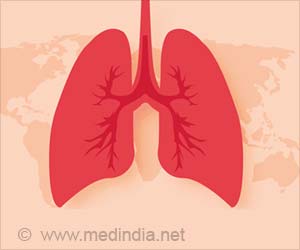Up to one in five TB (tuberculosis) deaths could be avoided if TB patients were not smokers.

Smoking is also associated with recurrent TB and people with the disease who smoke have a higher risk of mortality than non-smokers with TB. The scaling-up of tobacco cessation services for people with TB is therefore a clear priority.
Dr Mario Raviglione, Director of the Stop TB Department of WHO had discussed the Practical Approach to Lung health (PAL) with delegates at the 2007 39th Union World Conference on Lung Health. The approach focused on comprehensive treatment for all respiratory conditions and diseases, not just TB.
About 80% of smokers live in low and middle-income countries and 520 million people will die from tobacco-related illnesses in the next 50 years, according to available data. By 2030 the annual number of deaths from tobacco will increase from five million to more than eight million.
The Union has helped raise awareness of tobacco hazards, encouraging its partners to play an active role in tobacco control and recognize the link between tobacco and TB.
It has also promoted effective tobacco control policies through technical resources, training a new generation of managers and practitioners and supporting effective programs through grants.
Advertisement
The monograph also called for the operation of smoke-free public health centres and the training of health workers to deliver smoking cessation treatment.
Source-Medindia















